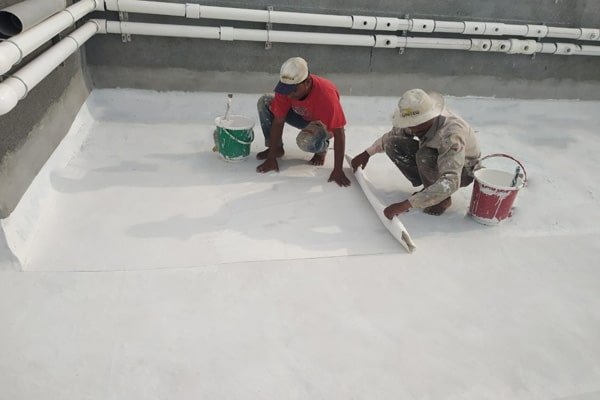Ensuring Longevity: The Role of Leakage-Proofing Chemicals in Under-Construction Plazas and Buildings
Introduction
When constructing a building or plaza, ensuring its durability and longevity is paramount. One of the most critical aspects of this is managing and preventing leakage. Water damage can undermine structural integrity, lead to costly repairs, and diminish the building’s lifespan. Leakage-proofing chemicals play a pivotal role in safeguarding structures against water ingress. This article explores the importance of these chemicals, their types, applications, and benefits in ensuring that under-construction plazas and buildings remain resilient and secure.
Understanding Leakage-Proofing Chemicals
Leakage-proofing chemicals are specialized substances designed to prevent water from penetrating building surfaces and structures. They form a protective barrier that inhibits moisture ingress, which is essential in maintaining the integrity of the building. These chemicals are applied to various surfaces, including concrete, masonry, and metal, to ensure that water does not compromise the structure’s durability.
Types of Leakage-Proofing Chemicals
- Cementitious Waterproofing Compounds: These are commonly used for their simplicity and effectiveness. They are typically a mixture of cement and other additives that enhance their waterproofing capabilities. Applied as a slurry or thick paste, they create a waterproof barrier that is ideal for basements, water tanks, and terraces.
- Polyurethane-based Sealers: Polyurethane sealers offer excellent flexibility and adhesion. They are highly effective in sealing joints and cracks, making them suitable for areas subject to movement or expansion. These sealers form a durable, elastic layer that prevents water from penetrating the surface.
- Acrylic-based Sealers: Acrylic sealers are valued for their ease of application and aesthetic finish. They are often used on surfaces where appearance matters, such as on exposed concrete or decorative stonework. They provide a water-resistant coating that is also UV-resistant, which helps in maintaining the appearance of the structure over time.
- Bituminous Coatings: Bituminous coatings are derived from bitumen, a byproduct of petroleum. They are highly effective in preventing water ingress and are often used in applications such as roof membranes and foundation walls. Bituminous coatings are known for their durability and resistance to various environmental factors.
- Silicone-based Sealants: Silicone sealants are renowned for their superior water resistance and flexibility. They are ideal for sealing joints, gaps, and cracks in both horizontal and vertical applications. Silicone sealants also offer resistance to extreme temperatures and UV exposure.
Application Methods
The effectiveness of leakage-proofing chemicals depends not only on their type but also on their application. Here’s a brief overview of common methods used:
- Surface Preparation: Before applying any waterproofing chemical, it is crucial to prepare the surface. This involves cleaning the area to remove dust, debris, and any loose material. For some applications, surfaces may need to be primed to enhance adhesion.
- Application: Depending on the type of chemical used, the application method may vary. Cementitious compounds are often applied with a brush or trowel, while polyurethane and acrylic sealers may be sprayed or rolled onto the surface. Bituminous coatings are usually applied with a brush or roller, and silicone sealants are often applied using a caulking gun.
- Curing: After application, many leakage-proofing chemicals require a curing period during which they need to remain undisturbed. This period allows the chemicals to fully bond with the surface and develop their waterproofing properties.
- Inspection and Maintenance: Post-application, it’s essential to inspect the treated surfaces to ensure there are no missed spots or areas where the application may have been inadequate. Regular maintenance checks can help identify and address potential issues before they lead to significant damage.
Benefits of Leakage-Proofing Chemicals
- Enhanced Structural Integrity: By preventing water from penetrating the building materials, leakage-proofing chemicals help maintain the structural integrity of the building. This is crucial for avoiding issues such as rusting of reinforcement bars, deterioration of concrete, and damage to plaster and finishes.
- Cost Savings: Preventing water damage can lead to significant cost savings over time. It reduces the need for costly repairs and replacements, and can also help in avoiding disruptions to the building’s operations.
- Improved Indoor Air Quality: Leakage can lead to mold and mildew growth, which adversely affects indoor air quality. By effectively sealing out moisture, leakage-proofing chemicals help create a healthier indoor environment.
- Increased Property Value: A well-maintained, water-resistant building is more attractive to potential buyers and tenants. Proper leakage-proofing can enhance the overall value of the property and its appeal in the real estate market.
- Environmental Protection: By preventing water damage and subsequent decay, leakage-proofing chemicals contribute to reducing the environmental impact associated with the need for frequent repairs and replacements.

